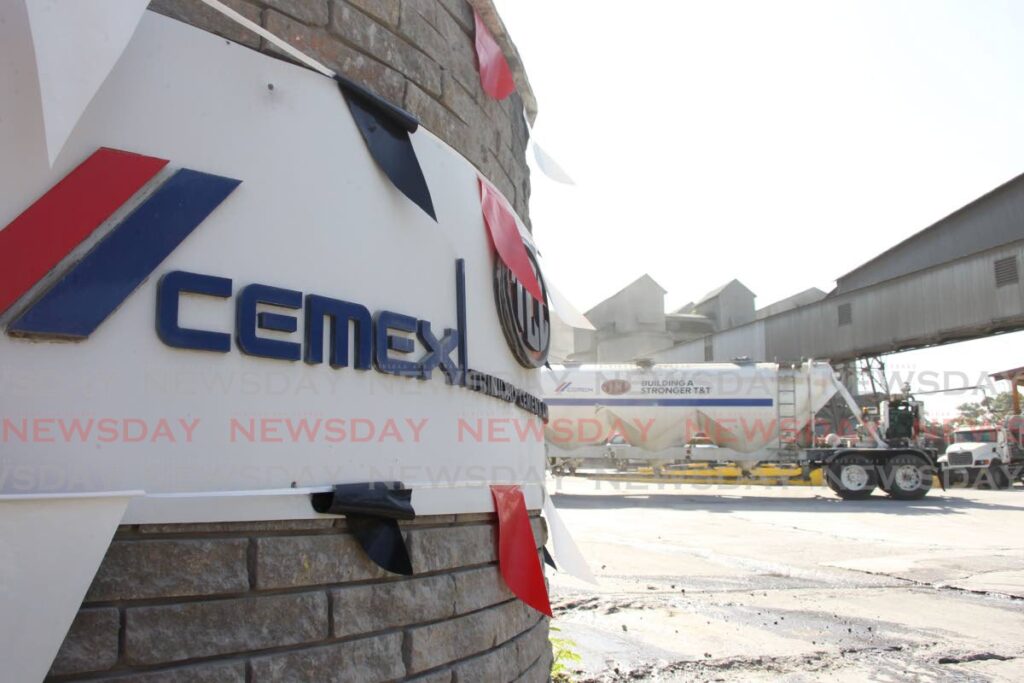Privy Council orders cement companies, ex-CEO to pay shareholder’s costs

THE Judicial Committee of the Privy Council has delivered a landmark ruling which paves the way for a judge to make an order to recover costs.
On Tuesday, five Privy Council judges – Lords Lloyd-Jones, Leggatt, Burrows, Stephens and Lady Rose – reversed a judgment of the Court of Appeal in a defamation claim and ordered that costs should be paid to Dr Anthony Elias which must be assessed by a master in chambers.
Elias had been sued by former Trinidad Cement Ltd (TCL) CEO Rollin Bertrand, TCL and Caribbean Cement Ltd.
They alleged that Elias, a shareholder, defamed them at an annual general meeting of TCL, in 2009, “voicing his dissatisfaction about the way Mr Bertrand had provided information about TCL to its shareholders, and the accuracy of such information in relation to a cement quality crisis at CCL’s cement plant in Jamaica in 2006,” according to the history of the claim in the judgment.
The defamation claim alleged that Elias accused Bertrand of being dishonest in the conduct of TCL’s business, mismanaging the affairs of the companies and being prepared to mislead the shareholders and directors, among other allegations. The judgment gave details of Elias’s alleged anger over the cement crisis in 2006 involving the supply of defective cement and losses of $63 million.
On the morning of the trial, on January 20, 2015, the companies’ lawyers withdrew the defamation claim and told the judge Bertrand “no longer had a role to play in TCL or CCL,” he and the board had been removed as directors and he had been terminated as group CEO.
Justice Joan Charles ordered Bertrand and the companies to pay assessed costs to Elias, since it was a joint claim.
The Appeal Court, comprising Justices of Appeal Alice Yorke Soo Hon, Peter Rajkumar and Maria Wilson, overturned Charles’s ruling on costs and ordered instead that the costs be on the prescribed sale.
If costs are quantified as prescribed costs, they would amount to $27,000. In contrast, if costs are assessed, they would amount to $559,695.
Elias appealed to the Privy Council.
The Law Lords held that “the general rule that costs awarded are prescribed costs may not be appropriate in all cases.”
They said the Appeal Court fell into error by not exercising its discretion in quantifying costs.
“The Board considers for several cumulative reasons, in the circumstances of this case where the reasonable estimate of the actual costs is hugely disproportionate to the likely amount of prescribed costs, that this is an exceptional case.”
They pointed out that a “powerful reason” for departing from the general rule in relation to TCL and CCL was that the companies acknowledged the defamation claim was “ill-founded,” and should never have been brought.
“The Board considers that the prescribed costs regime is for genuine claims, and, although it generally applies in cases of discontinuance, it should not be used to protect TCL and CCL from the consequence of reimbursing the defendant in relation to the reasonable costs he actually incurred in defending ill-founded proceedings that should never have been brought by TCL and CCL.”
The judgment also said the Privy Council considered the complexity of the case was a factor to be taken into account when exercising discretion.
“Again in the circumstances of this case where the reasonable estimate of the actual costs is hugely disproportionate to the likely amount of prescribed costs then the prescribed costs regime should not be used to adversely affect the defendant’s freedom of speech at meetings of shareholders.
“The defendant’s freedom of speech could be adversely affected by the claimants bringing ill-founded and groundless claims alleging defamation and then restricting the defendant to recovering prescribed costs."
They said many litigants would be intimidated and silenced if they knew they had to incur substantial costs but could only recover a very small fraction even if they were successful. Even before that, they said, Indeed, at an anterior stage, many shareholders wishing to raise a legitimate issue with management at a general meeting would also be intimidated and silenced.
The Privy Council judges said Bertrand could have continued the action even if the companies were withdrawing from it, but by abandoning the claim, he too acknowledged it was “ill-founded.”
“Again, the Board considers that the prescribed costs regime is for genuine claims, and it should not be used to protect Mr Bertrand from the consequence of reimbursing the defendant in relation to the reasonable costs he actually incurred in defending ill-founded proceedings that should never have been brought by Mr Bertrand...
“Despite knowing the amount of costs which were estimated to be incurred by the defendant, and where they knew or ought to have known that these would be wholly disproportionate to the likely amount of prescribed costs, the claimants persisted right up to the door of the court in pursuing an ill-founded claim against the defendant.”
They said the claim was obviously of considerable importance not only to the parties, but also to the wider public in the Caribbean, given the background of the allegations.
Tuesday’s ruling now provides judges with guidance on what to look at when using their discretion in awarding costs.
Elias was represented by Ramesh L Maharaj, SC, assisted by Robert Strang, Vijaya Maharaj, Michael Rooplal and Isa Dookie.
Bertrand was represented by Ian Benjamin, SC. Jason Mootoo, SC, appeared for TCL and CCL

Comments
"Privy Council orders cement companies, ex-CEO to pay shareholder’s costs"